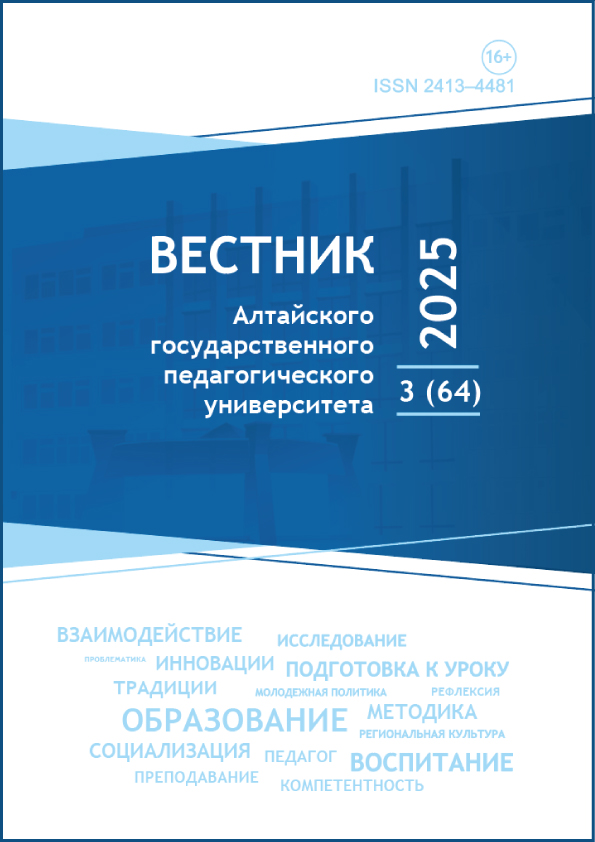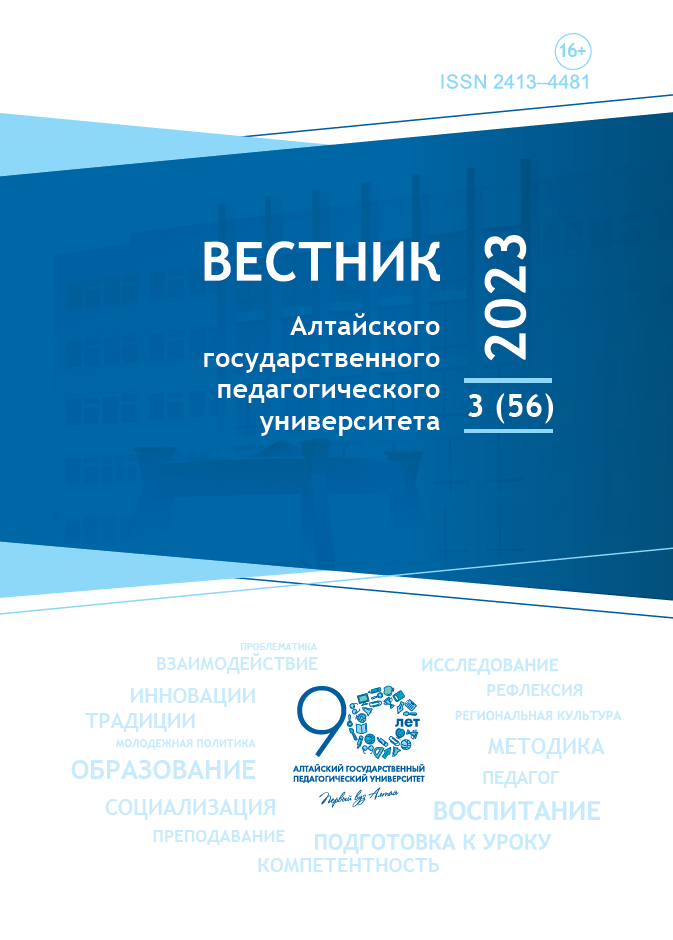THE ECOLOGICAL IMPERATIVE IN THE CONTEXT OF THE SOCIO-CULTURAL EXPERIENCE OF THE PEOPLES OF THE BAIKAL REGION
DOI:
https://doi.org/10.37386/2413-4481-2025-3-105-109Keywords:
ecological imperative, socio-cultural experience, interconnection, Baikal region, teacher, professional developmentAbstract
The article explores the meanings of the concepts “ecological imperative” and “socio-cultural experience”. The aim of the study is to analyze the specific relationship between the ecological imperative and the socio-cultural experience of the Buryats, the indigenous people of the Baikal region. The novelty of the research lies in the integration of elements of “flipped learning” within professional development courses for educators. As a result, educational products were created based on independently completed teacher assignments, which highlighted key aspects of the interconnection between the ecological imperative and the Buryats’ socio-cultural heritage.References
Кант И. Критика практического разума / пер. Н. М. Соколов. М.: Юрайт, 2025. 177 с. URL: https://urait.ru/book/kritika-prakticheskogo-razuma-567876 (дата обращения: 11.07.2025).
Колосова О. Ю. Экологический императив и многообразие форм социокультурного опыта // Гуманитарные и социальные науки. 2008. № 1. С. 77-85.
Колесников Ю. Ю. Экологический императив: духовно-парадигматический дискурс: дис. … канд. филос. наук. Ставрополь, 2006. 163 с.
Соловьев В. С. Оправдание добра. М.: Институт русской цивилизации; Алгоритм, 2012. 656 с.
Лефрансуа Г. Теория научения. Формирование поведения человека. СПб.: Прайм-Еврознак, 2003. 278 с.
Рабочая книга учителя к курсу «Экология Москвы и устойчивое развитие» / Г. А. Ягодин, М. В. Аргунова, Т. А. Плюснина, Д. В. Моргун; под ред. Г. А. Ягодина. М.: МИОО, 2008. 403 c.
Дзятковская Е. Н. Выступление в Иркутской области. URL: https://47-detsad.ru/wp-content/uploads/2023/11/%D0%94%D0%97%D0%AF%D0%A2%D0%9A%D0%9E%D0%92%D0%A1%D0%9A%D0%90%D0%AF_%D0%95_%D0%9D_%D0%92%D1%8B%D1%81%D1%82%D1%83%D0%BF%D0%BB%D0%B5%D0%BD%D0%B8%D0%B5_%D0%98%D1%80%D0%BA_%D0%BE%D0%B1%D0%BB_27_06_02.pdf (дата обращения: 11.07.2025).
Вагнер И. В. Развитие социокультурного опыта школьников в процессе воспитания // Педагогический журнал. 2018. Т. 8, № 2А. С. 130-137.
Капранов Г. А. Особенности использования в учебном процессе модели обучения «перевернутый класс» // Теория и практика современной науки. 2015. № 3 (3). С. 194-198.
Downloads
Published
Issue
Section
License
Для публикации статьи в журнале «Вестник Алтайского государственного педагогического университета» автору необходимо заключить лицензионный договор с федеральным государственным бюджетным образовательным учреждением высшего образования «Алтайский государственный педагогический университет» (ФГБОУ ВО «АлтГПУ»).



